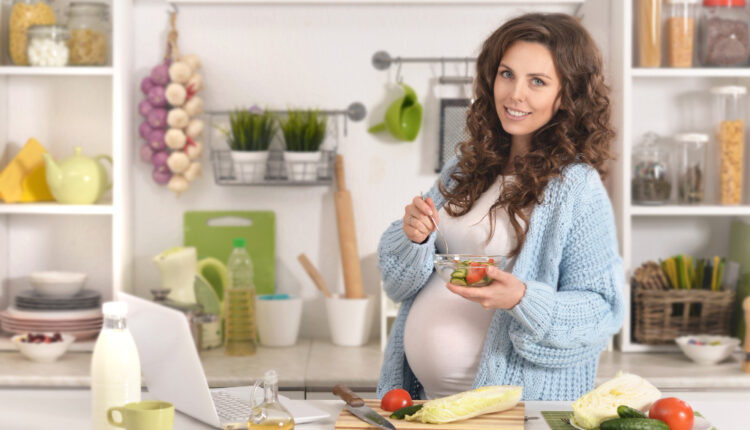Are you considering expanding your family? The journey to parenthood often begins with thoughtful preparation, and one crucial aspect is a well-balanced and nutritious diet. In this guide, we’ll explore the ins and outs of a preconception diet, covering everything from essential nutrients to culinary tips for healthy meal preparation.
Understanding Nutritional Needs
Before embarking on your journey towards parenthood, it’s crucial to understand the nutritional needs that play a pivotal role in fertility. Folic acid and iron are two key nutrients that deserve special attention during preconception. These nutrients are instrumental in supporting a healthy pregnancy and preventing potential complications.
Balancing Macronutrients
A balanced diet is the foundation of good health, and it’s especially important when you’re preparing for pregnancy. Carbohydrates, proteins, and fats each play a unique role in supporting your body’s functions. Strive for a harmonious mix of these macronutrients to ensure optimal fertility.
Foods to Include for Optimal Health
Incorporating a variety of nutrient-dense foods is key to maintaining optimal health during preconception. Fruits, vegetables, whole grains, and fiber-rich foods should find a prominent place in your daily meals. These foods not only provide essential vitamins and minerals but also contribute to overall well-being.
Essential Vitamins and Minerals
Certain vitamins and minerals are particularly crucial during preconception. Vitamin D and calcium support bone health, while iron-rich foods contribute to proper blood circulation, laying a solid foundation for a healthy pregnancy.
Hydration During Preconception
Staying well-hydrated is often overlooked but is critical when preparing for pregnancy. Water plays a vital role in various bodily functions, including reproductive health. Ensure you’re meeting your daily hydration needs to support overall fertility.
Limiting Harmful Substances
It’s no secret that certain substances can impact fertility negatively. Caffeine and alcohol are two such culprits. While moderate consumption might not pose significant risks, it’s advisable to limit these substances when preparing for pregnancy.
The Importance of Regular Exercise
Physical activity is not only beneficial for your overall health but also has a positive impact on fertility. Incorporate regular exercise into your routine, choosing activities that you enjoy and that align with your fitness level.
Maintaining a Healthy Weight
Weight plays a crucial role in fertility, and both underweight and overweight conditions can affect conception. Strive for a healthy weight by adopting a balanced diet and incorporating regular physical activity into your lifestyle.
Stress Management Techniques
The mind-body connection is powerful, and stress can impact fertility. Explore stress management techniques such as meditation, deep breathing, and mindfulness to create a more conducive environment for conception.
Role of Omega-3 Fatty Acids
Omega-3 fatty acids are essential for fetal development and can be obtained from sources like fatty fish, flaxseeds, and walnuts. Including these in your diet supports the healthy growth and development of your future little one.
Dietary Supplements
In addition to a well-rounded diet, consider incorporating prenatal supplements. Consult with your healthcare provider to ensure you’re taking the right supplements in the appropriate doses for your individual needs.
Building a Preconception Meal Plan
Crafting a preconception meal plan involves selecting a variety of nutrient-rich foods. Consider including a mix of lean proteins, whole grains, fruits, and vegetables to create meals that are both delicious and nourishing.
Culinary Tips for Preparing Healthy Meals
Preserving the nutritional value of your meals is crucial. Opt for cooking methods like steaming, roasting, and sautéing, which help retain the maximum amount of nutrients. Experiment with herbs and spices to enhance flavor without relying on excessive salt or sugar.
Seeking Professional Guidance
Every individual is unique, and their nutritional needs vary. Consulting with a nutritionist or healthcare provider can provide personalized guidance, ensuring that your preconception diet aligns with your specific requirements and health conditions.
Conclusion
Embarking on the journey to parenthood is an exciting and transformative experience. By prioritizing a healthy and well-balanced diet, you’re laying the groundwork for a successful and fulfilling pregnancy. Remember, your nutritional choices not only impact your well-being but also contribute to the health and vitality of your future family.
FAQs – Frequently Asked Questions
- Q: Can I continue to enjoy my favorite caffeinated beverages while preparing for pregnancy?
- A: Moderation is key. Limiting caffeine intake is advisable, but you don’t necessarily have to give up your favorites entirely.
- Q: Are there specific foods that can boost fertility?
- A: While no magic foods guarantee conception, a balanced diet rich in nutrients supports overall fertility.
- Q: How soon should I start focusing on a preconception diet before trying to conceive?
- A: Ideally, adopting a healthy lifestyle, including dietary changes, a few months before attempting to conceive is beneficial.
- Q: What exercises are recommended for boosting fertility?
- A: Moderate exercises like walking, swimming, and yoga are generally considered beneficial for fertility.
- Q: Can supplements replace a healthy diet when preparing for pregnancy?
- A: Supplements should complement a healthy diet, not replace it. Consult with your healthcare provider for personalized advice.
Now you know more information about preparing for pregnancy diet.

